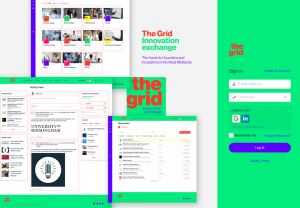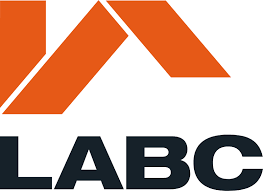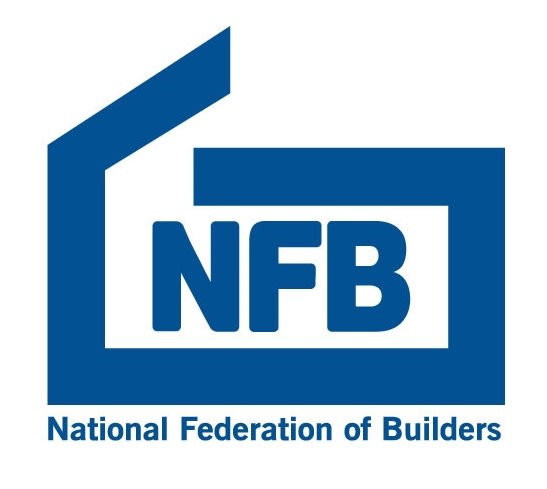 We start the new year with not one but three new chairs for the G4C Midlands group.
We start the new year with not one but three new chairs for the G4C Midlands group.
Georgia Williams will be standing down and the reigns will be taken up by Nikita Badesha, Peter Richardson and Ben Hole.

CE Midlands has been in existence, in its current guise, for 2 ½ years and during that time we have built membership to more than 80 member companies and over 300 individuals. We have grown not only in membership but also influence and our ground-breaking best practice guides are now used extensively throughout the sector. Please see: Resources – Constructing Excellence Midlands
With lessons learned through Covid-19 and a New Year upon us the time is right to re-assess our goals and objectives reflecting our industry and the Roadmap to Recovery for which we provide the industry dissemination across the East and West Midlands. We are also the official Adoption partners of the Construction Innovation Hub and this involvement will greatly benefit the industry in general and our members when it comes to future influence. Our first project to provide workshops for the Valuation Toolkit is already underway. Please see: https://constructioninnovationhub.org.uk/
In addition we have two significant pieces of work being carried out in association with Nottingham Trent University to:
- Update the Client Commitments Best Practice Guide Client-Commitments-Final_May-2014.pdf (constructingexcellence.org.uk)
- Create a Diploma in Smart Collaboration to deliver the culture and behaviours outlined as necessary in the Dame Judith Hackitt Review following the Grenfell Tragedy.
To allow us to carry out this essential work we require additional resource, both financial and people, and we are writing to you to ask that you consider joining CE Midlands as regional members. Membership offers you the opportunity to learn & share ‘best practice’, use the knowledge created to influence change and network with other leading construction professionals from across the Midlands. Our need is a specific commitment to allow us to continue our direction of travel.
Membership will provide access to our six Thought Leadership Theme Groups.
- Construction Clients Group (Clients only)
- Health & Wellbeing
- Innovation & Sustainability
- Procurement & Productivity
- Quality & Compliance
- Smart Construction (Digital & Offsite Technologies)
It will also give you membership of one of our Best Practice clubs and access to the other five.
- Birmingham & Black Country
- Coventry & Warwickshire (FoRCE)
- East Midlands
- Hereford & Worcestershire
- Shropshire
- Staffordshire
Should you have any queries or require further information please do not hesitate to contact me. In the meantime, please look at our current Annual Report at: https://www.cemidlands.org/assets/Downloads/cem2019annualreview.pdf . A new Annual Report will be launched at our AGM on 21st January 2021 with places available by visiting: CE Midlands Annual General Meeting – Constructing Excellence Midlands
We do hope that you will consider this request favourably and hope to hear back from you shortly. You may join immediately by filling in the application form here: Join Now – Constructing Excellence Midlands
Yours sincerely,
Andrew Carpenter
Chief Executive, CE Midlands

This month, Martyn Jones continues his exploration of the changes that can be made to construction’s operating system and delivery methods to combine purpose with profit, and to sustain the spirit of “we’re all in this together” as seen in our response to the challenges of the pandemic.
In December he looked at Two Stage Open Book procurement. He starts the New Year by making the case for project bank accounts (PBAs) in bringing construction clients and lead and specialist contractors together in the spirit of a joint enterprise.
PBSs are not new of course, but they do offer a way to shift the focus away from lowest price procurement/race to the bottom and towards delivering better project outcomes for clients and the whole supply chain.
Back in 2006, Professor Rudi Klein, a leading campaigner and advocate for the interests of construction subcontractors in general and combatting payment abuse in particular, was the guest speaker at the launch of the Bristol Rethinking Construction Club report for the then department of Trade and Industry: Bridging the Gap: Connecting Bristol’s specialist and trade contractors with the Rethinking Construction agenda.
At the event in Bristol, Rudi endorsed the Club’s report and called for the use of project bank accounts to combat payment abuse. This resonated with the findings of the Bristol Club’s investigation, which set out the barriers to specialist contractors’ engagement with the Rethinking Construction movement. These included the onerous payment procedures and retention regimes of many clients and lead contractors.
PBAs work by ring-fencing accounts from which payments are made directly and simultaneously by the client to all parties in the supply chain. Funds in the account can only be paid to beneficiaries, that is, members of the supply chain named in the account (i.e., the lead contractors and supply chain members).
They provide a means of enabling faster payments through the construction supply chain, with payments being made as soon as 5 days from the due date. This is intended to reduce cash flow problems that can lead to the insolvency of supply chain members which, as we know, is potentially catastrophic risks for projects in terms of money and time.
Why use PBAs? Let’s start with the very important but practical advantages. Supply chain members do not have to wait for upstream contractors to process payments as they receive them directly, ensuring certainty, security and speed of payments. It reduces the need for supply chain members to borrow or finance credit and the assets in the PBA are protected from tier 1 insolvencies.
They ensure regular payments within timescales that are much shorter than where cash has to be cascaded down through different contracting layers. Retention monies can be ‘ring-fenced’, providing supply chain members with security that they will eventually be paid when due, Payment-based disputes are reduced, and supply chain members can reallocate the time and energy they spend on chasing payments to more constructive value-adding activities.
But consider this. Even more importantly, in my view, a PBA brings lead contractors and specialists together in a different business relationship, and in the case of the dual authority model of PBAs, bringing clients, lead contractors and specialists closer together.
A PBA places all parties on a more equal footing and sends strong signals that opportunistic behaviour is not acceptable, or indeed needed, as supply chain members are paid fairly and promptly as valued members of a collaborative team. It incentivises lead contractors and supply chains to change their value propositions and move away from providing lowest price solutions. In short, a further step towards unlocking specialist contractor potential to deliver innovative, value-based solutions.
Who is using PBSs? Back in 2010, the UK Government introduced a policy requiring all UK government procurers to use PBAs unless there are compelling reasons not to do so. All the devolved governments also have policies in place requiring the use of PBAs.
Highways England likes them. In their view, “PBAs are now acknowledged to be the most effective method of ensuring secure and regular cash flow, particularly in the wake of recent lead contractor insolvencies. Using them makes [us] the client of choice in an increasingly competitive market and ultimately helps us deliver our programme to improve our road network, and besides efficiencies, they’re also helping us do the right thing for our suppliers.”
However, research by The Specialist Engineering Contractors’ (SEC) Group indicates that the take-up of PBAs by local authorities in England has been slow. Why? Well, there are some challenges including sometimes a lack of transparency along the supply chain regarding their operation and the Cabinet Office hasn’t validated the “compelling reasons” given by a department or agency for not using PBAs.
Occasionally issues have arisen too where the tier 1 contractor has gone into insolvency and there is concern amongst supply chain firms of what happens to disputed sums – although in Highways England projects disputed monies are kept in the PBA until the dispute is resolved. And, perhaps most significantly, lead contractors are reluctant to relinquish their control of the flow of money and the leverage it gives them downstream in the supply chain and which in turn may impact on their profitability. So maybe clients need to show leadership and recognise that their lead contractors should have larger margins and so removing the need for opportunistic behaviour?
It’s the time of year when we think about resolutions for the coming year. Perhaps PBAs should be on your list for changes in 2021?

Happy New Year to members of Constructing Excellence Midlands. Let’s hope that the issues that we slid into last year are ones that we can come out from stronger, more focused and better prepared during this year.
New Year is a time for resolutions and whilst I firmly believe that “A resolution is not just for Christmas”, the holiday does allow for a period of reflection and I suggest renewed resolutions for our industry might be:
To take the mental health of my team very seriously and encourage pro-active support of staff and all our wider stakeholders. Construction workers are under greater stress than before Covid, with pressures at home through protecting loved ones and at work through different processes and procedures. We are also each other’s livelihoods and we must look after each other if we are to prosper.
To recruit, train and support our younger colleagues. With all the pressures that our businesses face it is all too easy to pause recruitment of young talent. Many of us know, through bitter experience, that these fallow periods leave a long shadow on our companies, as we miss out on a cohort of home grown expertise. With low levels of recruitment nationally there are some great young recruits waiting to be hired and plenty here within the Midlands.
Our excellent Universities and Colleges are a great place to start looking. Part of this resolution is work on mentorship of younger colleagues. My own journey into the industry was encouraged by mentors who gave me my ethics and an authority to challenge, (provided I first listened very carefully!). This breadth of knowledge and expectation makes these youngsters invaluable in our businesses much more quickly and much better at manging the change facing our industry.
To reduce the carbon footprint of my business and those of my customers. 2021 will be the year that the UK takes climate change seriously. COP26, the international UN Climate Change conference is being hosted in the UK in November. Our industry that accounts for over 10% of the UK’s carbon and can influence a massive 46%, can expect plenty of challenge and opportunity this year.
Nicki, my wife, has plenty more for me. Unfortunately, I’ve had to tell her that “working less this year” is not going to be particularly feasible this year! I am though looking forward to the challenges and working with great people to get through what promises to be an interesting and exciting year. Please do not forget that Constructing Excellence Midlands stands ready to support you and your organisations, to aid collaboration and to strengthen our regional industry.
May I wish you a happy, safe and prosperous 2021 from all at CE Midlands.
Mark Wakeford

With the clock ticking on Net Zero Carbon and legislation / industry standards tightening to meet this goal, we at CE Midlands have partnered with The Grid to create a dedicated transformative solution that will enable Construction sector businesses to stay ahead of the curve.
We have partnered to connect innovative minds, companies and organisations to provide a blend of real life, real time and virtual engagement for the Construction Industry in the Midlands.
We are part of a once in a lifetime partnership to assist companies to develop their products, services and practices to meet burgeoning environmental requirements. Our purpose is to enable business to develop cost effective and quality solutions that protect our climate and communities in the long-term.
the-grid.com


So how will we do this?
The SCI – GRID will provide an easily accessible and identifiable place for businesses of all sizes to gather, collaborate and find opportunities in the path to Net Zero. It will act as brokers and conduits to many resources. These include but are not limited to: best practice guidance, funding opportunities, partnership and consortia development, R & D access, and peer-to-peer support. In short, SCI – GRID will provide both in-person engagement within a new style of ‘virtual innovation and ideas park’, which like the physical equivalent, comes with open collaboration spaces, secure meeting rooms, a reference library, regular events and opportunities to meet other innovators and organisations.
The Midlands has been lacking a highly interactive, single-point resource for the construction supply-chain, dedicated specifically to environmental sustainability and innovation. The SCI – GRID will be a game-changer because it is not intended as a ‘static’ virtual platform, but a Community driven by; ideas creation, entrepreneurial flair, creativity and sector growth. It will help you and your business to engage with all of the local and regional business support organisations you need and many supply-chain business opportunities. Within it, you will be able to access co-working spaces, universities, accelerators and business networks. It will maximise synergies rather than reinvent the wheel.
The SCI – GRID provides a connection between companies and organisations of all sizes within the world of Construction. This will be especially helpful for larger businesses and institutions seeking solutions to their product, service and operational challenges, and for SMEs and Start-ups wishing to design or develop commercially viable Innovative responses to real life situations. Furthermore, it will enable opportunities and connections for companies who are diversifying into the construction industry to meet with construction industry firms seeking solutions that might lie outside the industry’s parameters.
The SCI – GRID is in its formative stages and will growth through your use and input. Log on. Let’s make it work.

Log on. Explore. Benefit. Make a difference!
the-grid.com
Noel Street
CE Midlands Sustainability & Innovation Group
















